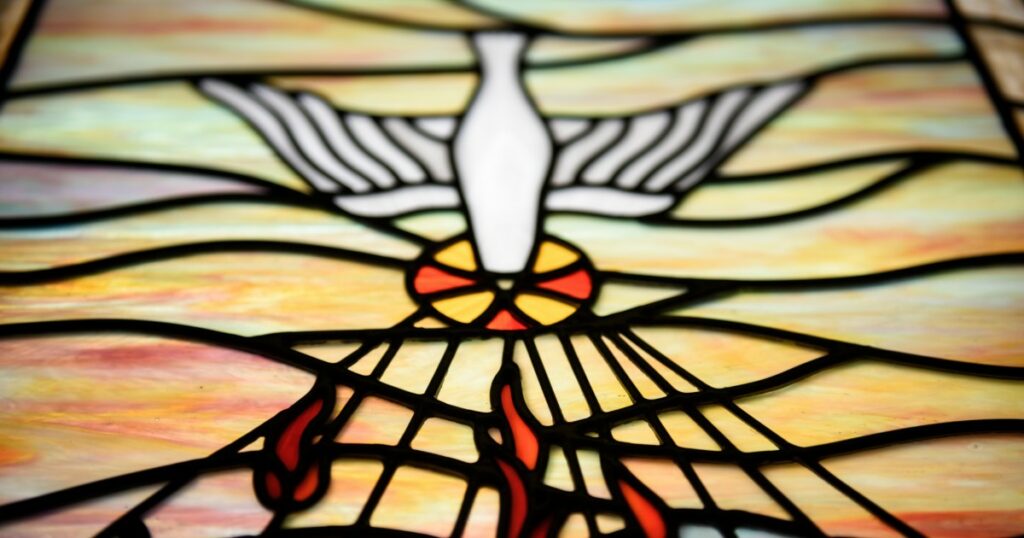Contrary to the conventional wisdom, we do not live in an increasingly secularized, materialist society. Rather, we live in a society in which people are increasingly “spiritual, but not religious.”
Tara Isabella Burton demonstrates this in her new book, Strange Rites: New Religions for a Godless World, where she explores this new spirituality.
She points out that among the Nones, the one-fifth of Americans who claim to have no religion, 72% say that they believe in God or “a higher power.” But the Nones hold to highly individualized, subjective and self-constructed spiritual beliefs. In effect, the Nones have religions — religions of one.
She chronicles how this new spirituality consists of bits and pieces from traditional religions, the New Age movement, fantasy games, self-improvement fads, diets, exercise regimens and social media. She notes that the NBA player Joakim Noah — who wears a Christian crucifix, Muslim prayer beads and Buddhist symbols — says, “I’m a little bit of everything” (p. 23).
Burton identifies two main theologies in this new spirituality. She calls one of them Californian ideology, a blend of pop psychology and a mystical faith in technology. The other is the Social Justice Movement, with its woke conversion experiences and its intersectional moral zeal to ally with the oppressed.
The internet and corporations that make money from spiritual “brands” drive these theologies. “The proliferation of Internet creative culture and consumer capitalism,” she writes, “have rendered us all simultaneously parishioner, high priest, and deity” (p. 242).
Burton calls this new spirituality “Remixed” religion. And it is not limited to the Nones. She shows how this same mentality is rampant among members of traditional churches. “The more individualized our religious identities become,” she writes, “the more willing we are to mix and match ideas and practices outside our primary religious affiliation” (p. 23).
She traces this mindset to the reduction of religion to personal, private and emotional experience. She cites the role of the Great Awakening and other American religious movements of the 19th century. In effect, she sees the Remixed as the spiritual heirs of a highly internalized Protestant Pietism.
Reformation re-centering
The Reformation was about re-centering the church around the Gospel of Jesus Christ and the Word of God. Despite what some say, it was not about religious individualism and the right of Christians to interpret the Bible any way they see fit.
Yes, the Reformation stressed the necessity of personal faith and the priesthood of all believers. But Luther ensured that faith would be grounded in objective reality: the authority of the Bible, the ministry of the church and the efficacy of the Sacraments. The danger of subjectivism was countered by the doctrinal rigor of Lutheranism — with its emphasis on the incarnation, the creation and vocation — and its codification of the Bible’s teachings in the Book of Concord.
Later Protestants arguably drifted toward subjectivity, but, for the most part, they retained a commitment to Christ and the Bible, forming congregations and formulating theologies they held to be objectively true.
And yet, even in Luther’s time, some people pushed what they considered Reformation principles past the boundaries of Christianity. The “enthusiasts” (the name referring to their belief in a “God within”) believed that since the Holy Spirit dwelt in them, they didn’t need the Bible, much less the church or her teachings. The enthusiasts considered their inner impulses to have the authority of God Himself. In practice, this meant that the “God within” was the self.
The enthusiasts were thus spiritual, but not religious. Each enthusiast was, like their modern counterparts, “simultaneously parishioner, high priest, and deity.”
Luther strenuously opposed the enthusiasts. Adam was the first enthusiast, he said, following an inner voice rather than the Word of God. The Pope is an enthusiast, insisting that God inspires him directly, apart from the Word of God. The anti-sacramental Protestants are enthusiasts, stressing a direct working of the Holy Spirit in the heart as opposed to God’s external workings through Word and Sacrament. (See SA III VIII 3–9.)
Today, Lutheran pastors must carry out their ministries in a world of enthusiasts, some of whom may include members of their own congregations. And we Lutheran laity must be on guard, lest we slip into the enthusiast mindset that surrounds us.






The New Testament church has the example of Old Testament history to inform us on the pitfalls of living in this fallen world. Just as the Jews repeatedly adapted the heresies and pagan ideas of the surrounding nations, the church was continually faced with the same dilemma, assaults from without, apostasy from within. Being culturally ‘religious’ and superficially spiritual feeds a human need for meaning, but falls short of God’s plan of salvation. Incorporating false teaching into the Gospel and calling the mix Christianity is following Satan’s lie. What better way to destroy a soul, than to convince him or her that they can hold onto heresy and still receive the blessings of God? It goes against the word of God, and it is a reason the Lord said judgement begins at the house of God.